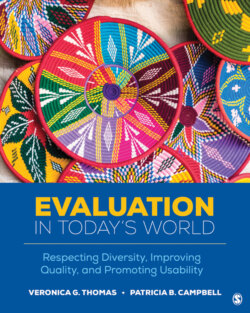Читать книгу Evaluation in Today’s World - Veronica G. Thomas - Страница 151
На сайте Литреса книга снята с продажи.
Lee J. Cronbach
ОглавлениеThe work of Lee J. Cronbach also was influential in evaluation and a contrast to the approach of Donald T. Campbell. As early as 1963, Cronbach challenged the evaluation community and pointed out that the current level of evaluation practice was wholly inadequate to meet the needs of the newly developed, federally sponsored curriculum reforms (O’Sullivan, 2004). He was skeptical of the view of evaluation as sterile, detached, objective scientific activities.
Cronbach did not champion a particular methodology for evaluation, and he valued methodological pluralism in evaluation centered on “better understanding society’s enduring social problems and the ways in which the specific policy and program being evaluated are meaningfully addressing one such problem” (Greene, 2004, p. 172). Cronbach’s work emphasized the limitations of randomized field trials, the importance of local contexts on performance, and the social and political aspects of program evaluation. As such, he focused not on the technical aspect of measurement in evaluation, but on the policy-oriented nature of evaluation. Cronbach’s evaluation research influenced program evaluations across various fields such as health and criminal justice reform, from health programs to juvenile delinquency programs. Cronbach coauthored two influential books in the evaluation field: Toward Reform of Program Evaluation (1980), which was written by a team of consortium faculty led by Cronbach, and a parallel volume, Designing Evaluations of Educational and Social Programs (1982).
